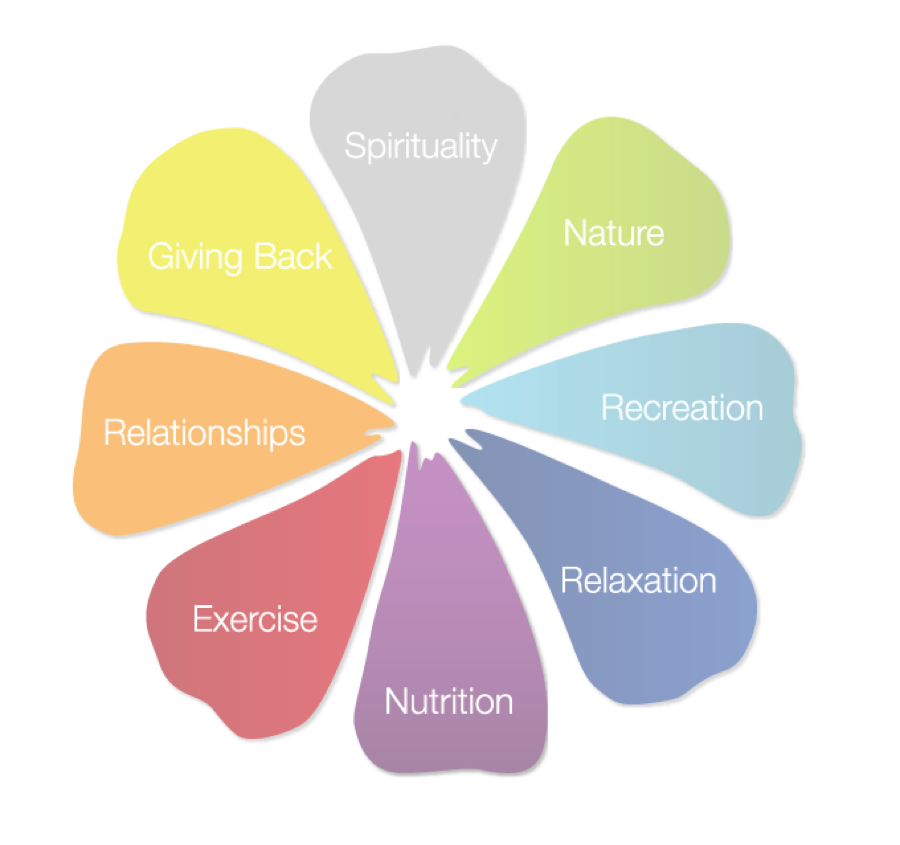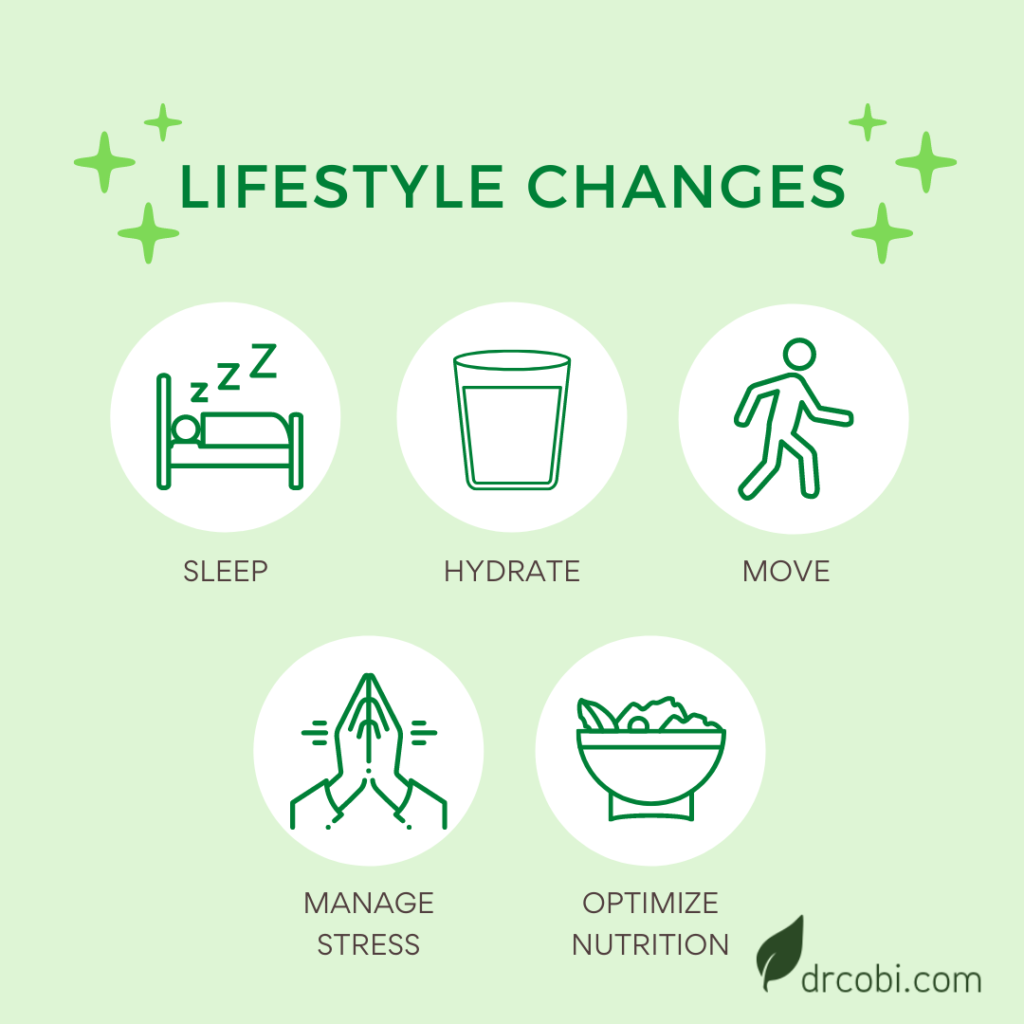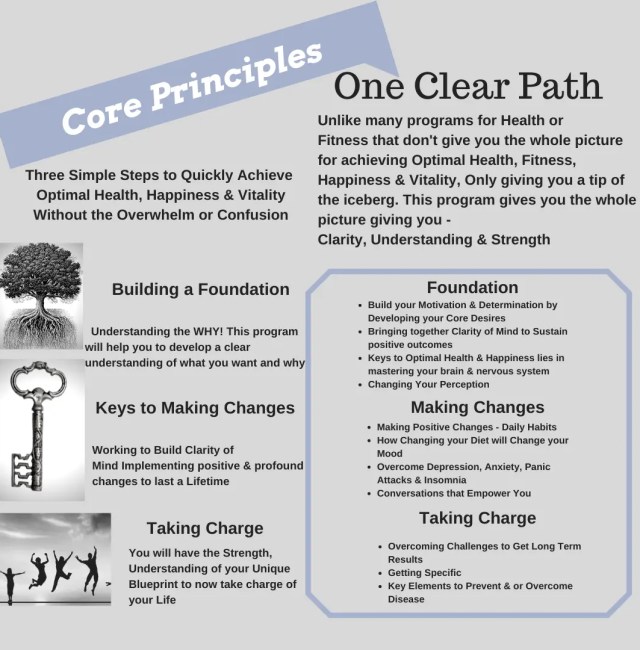Hello! In this article, we will discuss how you can achieve optimal health through simple lifestyle changes. We will explore various aspects such as exercise, nutrition, stress management, and sleep. By the end, you will have a better understanding of how small adjustments in your day-to-day routine can have a significant impact on your overall well-being. So, let’s get started on this journey towards a healthier you!
Introduction
In today’s fast-paced and hectic world, prioritizing our health has become more important than ever. Achieving optimal health is not just about being free from illness, but rather it is about taking proactive steps to enhance your overall well-being. By making simple lifestyle changes, you can improve your physical, mental, and emotional health. This article will guide you through various factors that affect your health and provide practical tips for adopting a healthier lifestyle.
Understanding Optimal Health
Defining optimal health
Optimal health refers to a state of physical, mental, and social well-being, where you are able to live your life to the fullest potential. It is not simply the absence of diseases or ailments, but rather a state of complete physical, mental, and emotional well-being. Achieving optimal health involves finding balance in all aspects of your life, including your diet, physical activity, stress management, sleep, social connections, and environmental factors.
Importance of achieving optimal health
Optimal health is crucial for leading a fulfilling and rewarding life. When you are in good health, you have the energy and vitality to pursue your passions, achieve your goals, and maintain positive relationships. It also reduces the risk of chronic diseases, improves cognitive function, boosts mood, helps in weight management, and enhances overall quality of life. By prioritizing your health and well-being, you empower yourself to live a happier, more meaningful life.

This image is property of images.squarespace-cdn.com.
Factors Affecting Health
To achieve optimal health, it is essential to understand the various factors that can significantly impact your well-being. Here are some key factors to consider:
Diet and nutrition
Your diet plays a crucial role in determining your overall health. A balanced and nutritious eating plan provides your body with the essential nutrients it needs to function properly. Focus on consuming a variety of whole foods, such as fruits, vegetables, lean proteins, whole grains, and healthy fats. Avoid processed foods that are high in trans fats, added sugars, and artificial additives. Stay hydrated by drinking an adequate amount of water daily to support digestion, nutrient absorption, and overall health.
Physical activity and exercise
Regular physical activity is vital for maintaining optimal health. Engaging in at least 150 minutes of moderate-intensity aerobic exercise, or 75 minutes of vigorous-intensity aerobic exercise per week, along with strength training exercises, can strengthen your muscles and bones, improve cardiovascular health, enhance mental well-being, and promote weight management. Choose activities that you enjoy, such as walking, cycling, swimming, or dancing, and make them a part of your daily routine.
Stress management
Chronic stress can have detrimental effects on your health. It is essential to develop effective strategies for managing stress in order to achieve optimal health. Practice relaxation techniques like deep breathing, meditation, and mindfulness to reduce stress levels. Engaging in activities that bring you joy, such as hobbies or spending time in nature, can also help alleviate stress. Additionally, proper time management and prioritization can prevent overwhelm and promote a sense of control in your life.
Sleep and rest
Adequate sleep and rest are crucial for optimal health and well-being. Aim for seven to eight hours of quality sleep each night to promote physical and mental rejuvenation. Establish a consistent sleep schedule by going to bed and waking up at the same time each day, even on weekends. Create a sleep-friendly environment by keeping your bedroom cool, dark, and quiet. Avoid electronic devices before bed, as the blue light emitted can interfere with your sleep quality. If needed, consider taking short power naps during the day to boost your energy levels.
Social connections
Strong social connections are essential for both mental and physical health. Nurturing existing relationships and building new connections can provide a support system and enhance overall well-being. Spend quality time with family and friends, engage in meaningful conversations, and participate in social activities. Joining social groups or clubs that align with your interests can help you meet like-minded individuals and foster new friendships.
Environmental factors
The environment we live in has a significant impact on our health. Poor air and water quality can lead to respiratory issues, allergies, and other health problems. Minimize exposure to toxins and pollutants by using natural cleaning products, purifying the air in your home, and filtering your water. Create a safe and healthy living space by ensuring proper ventilation and reducing clutter. Consider adopting sustainable living practices, such as recycling, reducing waste, and conserving energy, to protect both your health and the environment.
Adopting a Healthy Diet
Balanced and nutritious eating
To optimize your health, focus on adopting a balanced and nutritious eating plan. Include a variety of fruits, vegetables, whole grains, lean proteins, and healthy fats in your daily meals. Prioritize nutrient-dense foods that provide essential vitamins, minerals, and antioxidants. Limit your consumption of processed foods, which are often high in unhealthy fats, added sugars, and sodium. Pay attention to portion sizes and practice mindful eating to avoid overeating.
Benefits of whole foods
Whole foods are unprocessed or minimally processed foods that are closer to their natural state. They are rich in nutrients, fiber, and antioxidants, making them highly beneficial for your health. Whole foods provide sustained energy, promote healthy digestion, support weight management, and reduce the risk of chronic diseases such as heart disease, diabetes, and certain types of cancer. Incorporate whole foods like fruits, vegetables, whole grains, legumes, nuts, and seeds into your meals and snacks.
Avoiding processed foods
Processed foods, on the other hand, are typically low in nutrients and high in unhealthy ingredients. They often contain artificial additives, preservatives, and excessive amounts of sodium, added sugars, and unhealthy fats. Regular consumption of processed foods can contribute to weight gain, inflammation, and an increased risk of chronic diseases. Aim to minimize your intake of processed foods and opt for whole, unprocessed alternatives whenever possible.
Hydration and its importance
Proper hydration is essential for maintaining optimal health. Water plays a vital role in numerous bodily functions, including the regulation of body temperature, digestion, nutrient absorption, and the excretion of waste. Adequate hydration supports healthy skin, joints, and muscles, and helps prevent fatigue and headaches. Aim to drink at least 8 cups (64 ounces) of water each day, and adjust your intake based on activity levels, climate, and individual needs.

This image is property of www.drcobi.com.
Regular Physical Activity
Choosing the right exercise
When it comes to physical activity, it’s important to find activities that you enjoy, as this increases the likelihood of sticking to them long-term. Choose exercises that align with your interests and goals. Whether it’s dancing, cycling, hiking, or yoga, there are countless options available. Mix up your routine to keep it interesting and challenge different muscle groups. Consult with a fitness professional to ensure proper form and technique.
Benefits of regular physical activity
Engaging in regular physical activity offers numerous benefits for your overall health and well-being. It improves cardiovascular health, strengthens muscles and bones, enhances flexibility and balance, reduces the risk of chronic diseases, and promotes weight management. Physical activity also boosts mood, reduces stress levels, enhances cognitive function, and improves sleep quality. Aim for at least 150 minutes of moderate-intensity aerobic exercise or 75 minutes of vigorous-intensity aerobic exercise each week, along with strength training exercises.
Creating a fitness routine
Establishing a consistent fitness routine is key to maintaining regular physical activity. Schedule dedicated workout times in your weekly calendar and treat them as non-negotiable appointments. Start with small, achievable goals and gradually increase the intensity and duration of your workouts over time. Include a variety of exercises to target different muscle groups and prevent boredom. Find an accountability partner or join a fitness class to stay motivated and make exercise a fun social activity.
Incorporating strength training and aerobic exercises
In addition to aerobic exercise, it is essential to incorporate strength training into your fitness routine. Strength training exercises, such as weightlifting or bodyweight exercises, help build lean muscle mass, increase metabolism, improve bone density, and enhance overall strength and durability. Aim for two to three strength training sessions per week, focusing on all major muscle groups. Combine strength training with aerobic exercises to achieve a well-rounded fitness routine that supports optimal health.
Managing Stress Effectively
Understanding stress and its impact
Stress is a natural response to perceived threats or challenges. However, chronic stress can have a significant impact on your health and well-being. It can contribute to numerous physical and mental health problems, including cardiovascular disease, weakened immune system, anxiety, and depression. It is essential to learn how to manage stress effectively to maintain optimal health. Recognize your stress triggers and develop strategies to cope with them.
Stress management techniques
There are various techniques that can help you manage stress effectively. Regular physical activity releases feel-good endorphins and reduces stress hormones. Practice relaxation techniques, such as deep breathing exercises, meditation, and yoga, to calm your mind and body. Engage in activities that bring you joy and help you unwind, such as listening to music, reading a book, or taking a warm bath. Seek support from friends, family, or a therapist to talk about your feelings and gain perspective on stressful situations.
Meditation and mindfulness
Meditation and mindfulness practices can be incredibly beneficial for managing stress and promoting overall well-being. They involve focusing your attention on the present moment and cultivating a non-judgmental awareness of your thoughts, emotions, and sensations. Regular meditation and mindfulness practice can reduce stress, anxiety, and depression, improve attention and focus, enhance self-awareness, and increase feelings of calm and relaxation. Start with just a few minutes of daily practice and gradually increase the duration over time.
Time management and prioritization
Proper time management and prioritization are essential for reducing stress levels. Learn to identify your most important tasks and allocate enough time to complete them. Break larger tasks into smaller, manageable steps to prevent overwhelm. Use organizational tools, such as planners or digital apps, to stay organized and keep track of your responsibilities. Practice saying no to non-essential tasks and delegate when necessary. Set realistic goals and avoid overloading your schedule to create a healthy work-life balance.

This image is property of www.orthoindy.com.
Prioritizing Sleep and Rest
Importance of quality sleep
Quality sleep is crucial for achieving optimal health and well-being. During sleep, your body undergoes various restorative processes that help regulate hormones, repair cells, consolidate memories, and support overall brain function. Lack of sleep can lead to fatigue, impaired cognitive function, weakened immune system, increased stress levels, and a higher risk of chronic diseases. Prioritize getting seven to eight hours of quality sleep each night to support your physical and mental well-being.
Establishing a sleep routine
Creating a consistent sleep routine can significantly improve the quality of your sleep. Start by setting a regular bedtime and wake-up time, even on weekends. Establish a pre-sleep routine that signals to your body that it’s time to wind down, such as reading a book, taking a warm bath, or practicing relaxation techniques. Create a sleep-friendly environment by keeping your bedroom cool, dark, and quiet. Avoid stimulating activities and electronic devices before bed, as the blue light emitted can interfere with your sleep quality.
Creating a sleep-friendly environment
To ensure optimal sleep quality, it’s important to create a sleep-friendly environment in your bedroom. Invest in a comfortable mattress, pillows, and bedding that suit your preferences. Keep your bedroom cool and well-ventilated, as a slightly lower temperature promotes better sleep. Eliminate excess noise and light by using blackout curtains or earplugs. Consider using white noise machines or earphones if you live in a noisy environment. Keep electronic devices out of your bedroom or set them to “Do Not Disturb” mode to minimize distractions.
The role of napping
Napping can be a beneficial way to recharge and enhance overall well-being, especially if you have inadequate sleep at night or experience mid-afternoon fatigue. A power nap of 20-30 minutes can improve alertness, boost mood, and enhance cognitive performance. However, napping for too long or too close to bedtime can interfere with your nighttime sleep. Experiment with different nap durations and find what works best for you. If you struggle to fall asleep at night, try avoiding napping during the day.
Building Strong Social Connections
Impact of social relationships on health
Strong social connections are fundamental to achieving optimal health and well-being. Positive social relationships provide emotional support, reduce feelings of loneliness and isolation, increase self-esteem, and improve mental health. Research has shown that individuals with strong social ties have a lower risk of chronic diseases, better immune function, and increased longevity compared to those who are socially isolated. Prioritize building and nurturing meaningful relationships in your life.
Nurturing existing relationships
Nurturing existing relationships is essential for maintaining strong social connections. Schedule regular quality time with your family and friends. Engage in activities together, such as going for a walk, cooking a meal, or sharing hobbies. Practice active listening and show genuine interest in their lives. Express gratitude and appreciation for their presence in your life. Remember to be supportive and reliable during challenging times. By investing in your relationships, you strengthen the bonds and promote a sense of belonging.
Building new connections
Building new connections is equally important for expanding your social network and fostering personal growth. Step out of your comfort zone and engage in activities or join groups that align with your interests. Attend networking events, community gatherings, or workshops to meet like-minded individuals. Volunteer for causes that you are passionate about, as it not only allows you to contribute to your community but also provides an opportunity to meet new people. Be open-minded and approachable, and embrace diversity in your interactions.
Joining social groups or clubs
Joining social groups or clubs can be an effective way to meet new people and cultivate social connections. Find groups or clubs that focus on activities you enjoy or want to explore. This could be anything from sports teams, book clubs, gardening societies, to professional organizations. By actively participating in these groups, you not only expand your social circle but also create a sense of belonging and common interests. Collaborate with others, exchange ideas, and build lasting friendships.

This image is property of i0.wp.com.
Considering Environmental Factors
Air and water quality
The quality of the air you breathe and the water you consume can have a significant impact on your health. Poor air quality, often due to pollution or allergens, can cause respiratory issues, allergies, and other health problems. Take steps to improve indoor air quality by ensuring proper ventilation, using air purifiers, and avoiding exposure to tobacco smoke or other harmful gases. Install water filters or use filtered water to reduce the risk of ingesting contaminants from tap water.
Exposure to toxins and pollutants
Limiting exposure to toxins and pollutants is crucial for maintaining optimal health. Be mindful of harmful chemicals found in everyday products, such as cleaning supplies, personal care products, and pesticides. Opt for natural or organic alternatives whenever possible. Minimize exposure to environmental pollutants by reducing reliance on fossil fuels and adopting eco-friendly practices. Dispose of hazardous materials properly and avoid activities that release harmful substances into the environment.
Creating a safe and healthy living space
Your living environment plays a significant role in your overall health and well-being. Ensure your home is a safe and healthy space by keeping it clean, well-maintained, and free from hazards. Regularly clean and rid your living space of dust, mold, and other allergens. Install safety devices such as smoke detectors, carbon monoxide detectors, and fire extinguishers. Keep toxic substances, medications, and sharp objects out of reach from children. Maintain a clutter-free space to promote a calm and organized living environment.
Sustainable living practices
Adopting sustainable living practices benefits both your personal health and the health of the planet. Reduce waste by recycling and reusing whenever possible. Minimize energy consumption by turning off lights when not in use, using energy-efficient appliances, and opting for renewable energy sources. Choose eco-friendly products that are made from sustainable materials and have minimal impact on the environment. Embrace sustainable transportation options like walking, cycling, or using public transportation when feasible.
Conclusion
Achieving optimal health is within your reach by making simple lifestyle changes. By prioritizing your health through a balanced diet, regular physical activity, effective stress management, quality sleep, strong social connections, and consideration of environmental factors, you can enhance your overall well-being and lead a fulfilling life. Remember, it’s never too late to start prioritizing your health. Take small steps each day and gradually adopt healthier habits that align with your goals and values. Your future self will thank you for investing in your well-being.

This image is property of i0.wp.com.
